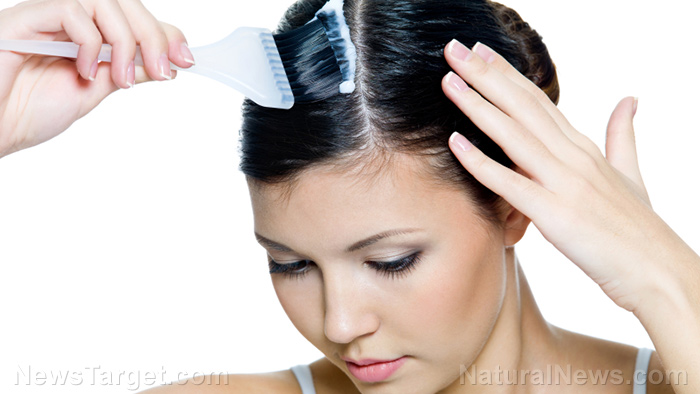 Parler
Parler Gab
Gab
- Methylparaben, a cost-effective preservative added to cosmetics, foods and drugs to prolong shelf life, is now questioned for its role as an allergen, endocrine disruptor and potential carcinogen. Studies have found it in breast tumors, sparking debate about its safety.
- Linked to skin irritation (per CDC) and reproductive toxicity (EU findings), methylparaben accumulates in fat tissues, complicating detox. Critics, like Dr. Samuel Epstein, note that regulatory approvals lack long-term data, while studies caution about cumulative hormonal effects.
- Used in everything from sodas to hair dyes to medical creams, methylparaben’s prevalence in everyday products makes consumer avoidance challenging, emphasizing the need for informed choices and product label scrutiny.
- Growing demand for safer alternatives has spurred a shift to natural chemicals like citric acid, tea tree oil and fermented ingredients.
- To reduce exposure, individuals can read labels, select paraben-free certified products and support transparent companies. Advocates urge stricter regulations and labeling to protect public health.
Methylparaben: Industrial uses and toxicity
Methylparaben belongs to the paraben family of preservatives, widely used in cosmetics and food manufacturing for its ability to inhibit the growth of bacteria, fungi and molds, thereby extending product shelf life. Its stability, cost-effectiveness and widespread approval by regulatory agencies like the Food and Drug Administration (FDA) have made methylparaben a mainstay in the formulation of personal care products, including shampoos, moisturizers and makeup, as well as processed foods and pharmaceuticals. However, its omnipresence masks a troubling reality: Prolonged exposure to methylparaben poses significant health risks. While parabens like methylparaben are often praised for their antimicrobial prowess, their safety is becoming increasingly contested. Studies highlight their capacity to act as endocrine disruptors -- chemicals that interfere with the body’s hormone systems. A landmark 2004 study published in the Journal of Applied Toxicology detected parabens in human breast tumors, raising concerns about their role in estrogen-driven cancers, though causal links remain debated. The Centers for Disease Control and Prevention (CDC) notes methylparaben’s allergenic potential, citing cases of contact dermatitis and skin irritation. The European Union’s Scientific Committee on Consumer Safety has also linked it to reproductive toxicity. Meanwhile, reviews published in Critical Reviews in Toxicology (2021) emphasize methylparaben's tendency to accumulate in fatty tissues, complicating detoxification processes. Dr. Samuel Epstein, in his Safe Cosmetics Handbook, highlights the lack of rigorous long-term studies on paraben safety, arguing that regulatory approvals rely on outdated methods. Epstein warned that parabens are "treated as harmless in small doses, yet cumulative exposure may alter hormonal balances" in ways researchers are only beginning to understand. (Related: Your skin absorbs toxins: Is your deodorant putting you at risk?) Methylparaben’s applications extend far beyond cosmetics:- Foods and beverages – Sodas, jams and baked goods use it to inhibit spoilage.
- Personal care products – Lotions, hair dyes and deodorants often include methylparaben to prolong freshness.
- Pharmaceuticals – Even medications, such as topical creams, may incorporate this preservative.
Methylparaben alternatives and detox tips
The real solution to methylparaben exposure lies in avoidance. Manufacturers are now opting to use naturally derived preservatives such as:- Natural acids – Citric acid and salicylic acid act as nontoxic preservatives.
- Botanical extracts – Tea tree oil and rosemary extract possess antimicrobial properties.
- Fermented ingredients – Leuconostoc/Radish Root Ferment Filtrate, derived from lactic acid bacteria, kills microbes effectively without causing harm.
More related stories:
Butylparaben in personal care products: A closer look at its role and harmful effects. PEG-40 hydrogenated castor oil: The hidden danger in your beauty cabinet. The dark side of retinoids: Toxicity, risks and the illusion of flawless skin. Sources include: Brighteon.AI NaturalNews.com Brighteon.comU.K. police crack down on pro-Palestine activists amid rising tensions
By Zoey Sky // Share
The hidden dangers of “convenience” foods
By Olivia Cook // Share
Governments continue to obscure COVID-19 vaccine data amid rising concerns over excess deaths
By patricklewis // Share
Tech giant Microsoft backs EXTINCTION with its support of carbon capture programs
By ramontomeydw // Share
Germany to resume arms exports to Israel despite repeated ceasefire violations
By isabelle // Share










